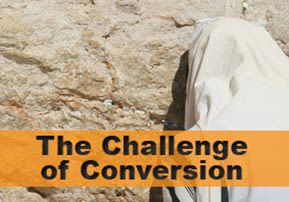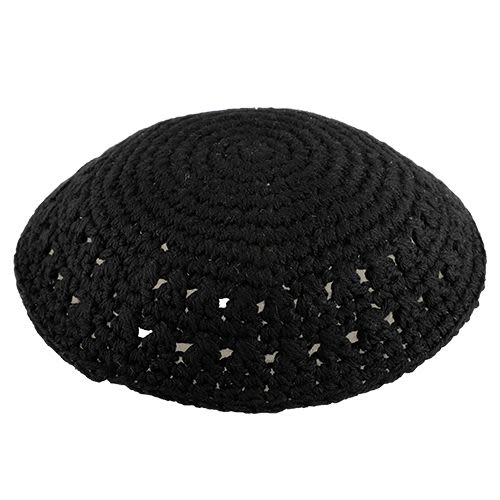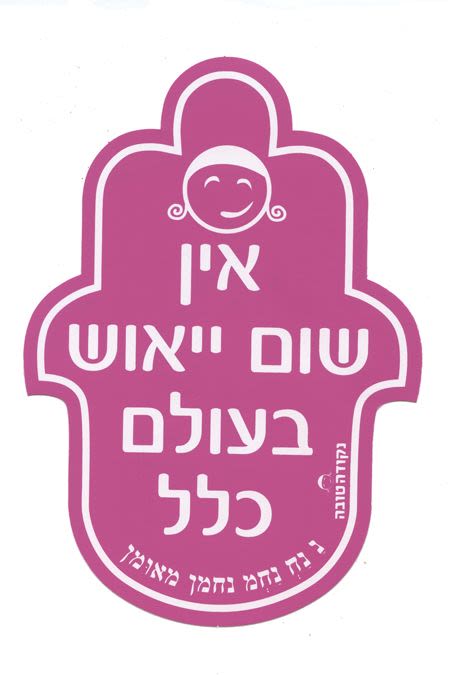
The Challenge of Conversion
The Brunells slowly make their transation in Israel, only to encounter a new test of their faith – the Israeli Rabbinate refuses to accept their Helsinki conversion…

Strangers No More, Part 19
After we moved out of the Merkaz Klitah to another part of town, we started to look for a Beit Knesset we could call our own. One Shabbat, our good friends, Ed and Eileen, invited us to a newly established kehilla with a young and enthusiastic rabbi and rebbetzin, Kinor David with Rabbi Tzvi and Oshra. In this warm, open and happy kehilla, we found our place. The captivating tunes of Rabbi Shlomo Carlebach echoed during the Shabbat prayer service, welcoming people to join in. At Kinor David, there were no reserved seats. Anyone, anytime, was welcome to attend. This was exactly what we needed. We were welcomed wholeheartedly, and a seat was always available for us. Back in Finland we had not experienced much shared joy at our conversion. Our fragile new souls did not know what to expect in our new environment. How surprised we were when we slowly opened up and were met with such a welcome. At last, somebody was rejoicing at our conversion. We began to feel more at home.
We still had one more surprise awaiting us. It began when Rabbi Tzvi asked about our conversion in Helsinki. He wanted to know exactly how we did it, what was involved, if Ruth and I were married according to Jewish halacha, among other things. These questions made me feel uncomfortable. If it had not been for his friendly smile and eyes glowing with warmth and humility, I would have become upset. Still, I did not understand why he questioned the conversion that was accepted by the State of Israel. Our Israeli ID stated “Jew” under nationality. We had documents to prove it, signed by the Orthodox Chief Rabbi of Helsinki, with the stamp of the Beit Din of Helsinki. (A Beit Din is a three-member court of rabbis who rule on issues such as conversion.) It took me a while to realize that this line of questioning was symptomatic of a culture that was still so new to us, a culture where you have the right, and even the responsibility, to question everything, from how often and where you pray, to what kind of food you eat. In our previous way of life these issues were private, not often discussed. Our adjustment to this different culture would take time.
Ruth and I had not been married under a chuppah (a canopy under which Jewish marriages take place) in Helsinki. Rabbi Tzvi was alarmed. According to Jewish law, we were not married. I certainly had not realized this. I only knew that Rabbi Michael in Helsinki left to take up another position the day after we received our conversion papers. Consequently nothing was done about any further procedures. And we had already begun planning our move to Israel.
“We’d better check with Jerusalem, to make sure your conversion is filed with the Rabbinate in Israel, not only with the Ministry of Interior. That’s not enough,” Rabbi Tzvi explained. Suddenly a chilling feeling of uncertainty came over me. What if it wasn’t enough? What then? “Anyway, we have to make sure you get married under the chuppah as soon as possible, and for that we need the approval of the Rabbinate. So that will be one way of finding out.” Rabbi Tzvi was comforting, but he could not hide his suspicion that there might still be a long way to go. “What if it is not registered?” I pressed him. What then?
“There are two possibilities,” he replied. “Either they accept your Helsinki conversion as it is or you have to make a new conversion here in Israel.”
For a moment, I was speechless. “There is a possibility that we have to undergo the conversion process again?”
“The best way to find out is to set a meeting with them as soon as possible.”
I remember my disappointment that bordered on anger. What about the rabbi’s declaration in Helsinki welcoming us into the House of Israel? How happy I was to hear that statement. Had I received a Jewish soul or not? How many times can you become a Jew? We had just started to enjoy the fruits of our conversion, as we were welcomed into our new community as Jews. I was just about to learn to walk when I was pushed over. And again, I had to take it from the beginning.
A meeting was scheduled for a few weeks later with a representative of the Rabbinate of Jerusalem. Rabbi Tzvi, who had made the initial contact, joined us for the trip and made the official introductions, but only my wife and myself met with the rabbi. The representative listened to our story and kindly asked a few test questions. But his mind seemed to have been made up. He rejected us. The reason, as we understood it, was that he did not know the Helsinki Chief Rabbi well enough. And also, for our own good, the family was asked to study and take a new test some time at a later date. To me it did not matter if it was tomorrow or in a year; the fact that he sowed doubt in my soul as to who I was, and doubt regarding the previous conversion – an event that meant so much to me – was a heavy enough burden for the moment. Was the joy and fulfillment I had felt over becoming a Jew unjustified? Maybe I wasn’t a Jew yet? I grieved as if I had lost somebody. I grieved over the Jewish soul he had taken away from me. Was it really up to him to take it or give it? My questions were charged with heavy emotions, which I shared with my wife, who also felt the loss keenly.
We knew what we had to do. We both wanted to regain our lost souls as soon as possible. Meanwhile, we had to confront our daughters with the situation and this was an enormous source of pain and grief for us. How much could they take? I asked myself again.
It turned out to be as difficult as I feared it would. The two youngest, Karolin and Josefin, who were only fourteen years old at the time, were enrolled in a secular school with special classes for new immigrants. This was not acceptable for the Rabbinate. They had to change to a religious school with religious subjects; otherwise none of us could continue studying with the hope of being accepted for conversion.
Fearing a situation of being without a valid religious status, so important for their Jewish marriage, the girls hesitantly agreed to move to the school advised by the Rabbinate. They also started a learning program helpfully organized by our congregation.
At this time our congregation, Kinor David, came to our rescue. Throughout our difficulties and our doubts, they were eager to reassure us how they felt and how they regarded us. To them we were Jews. The support from Rabbi Tzvi and Oshra helped us gain the right perspective. Joining the Jewish fold means a lifetime of commitment and learning. I never disagreed with that, but I would have preferred the first conversion to have been accepted. Our learning would continue anyway. Does it have to come the hardest possible way? If we had only known earlier that many of the conversions performed abroad must be completed in Israel, it might have softened the blow somewhat.
(Strangers No More, by Shlomo Brunell. Reprinted with courtesy of Gefen Publishing House 2005 www.gefenpublishing.com)












Tell us what you think!
Thank you for your comment!
It will be published after approval by the Editor.